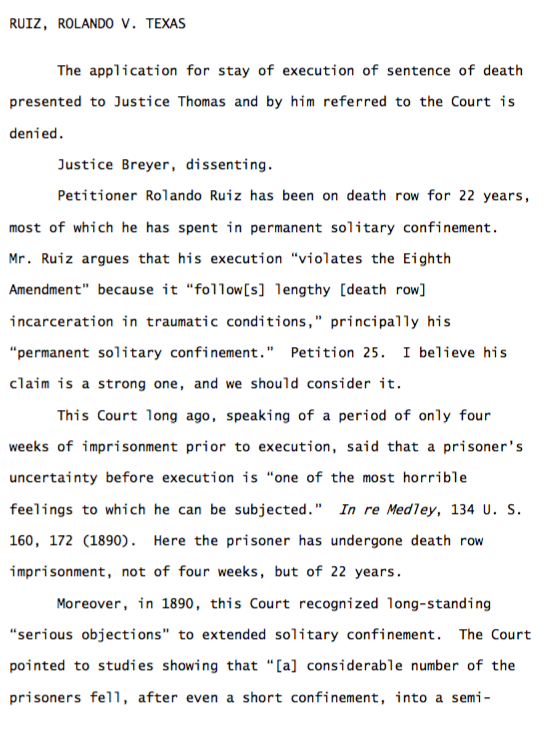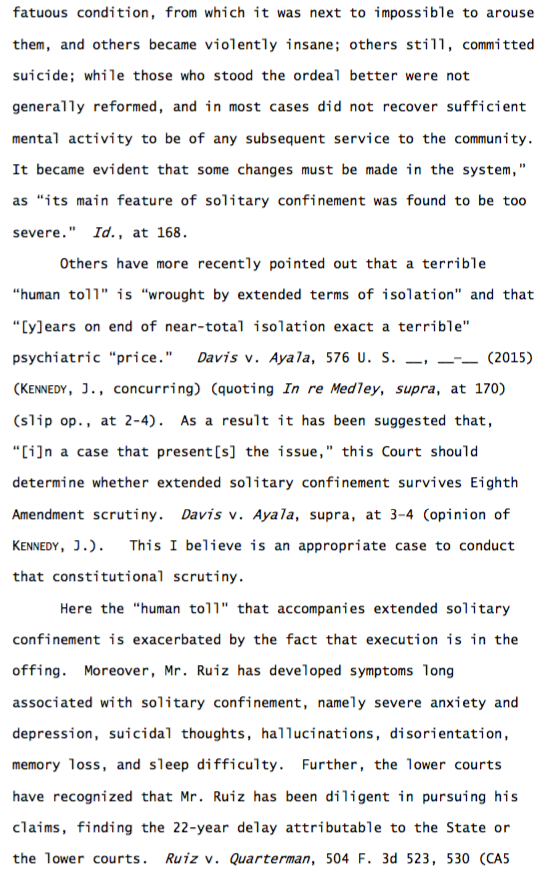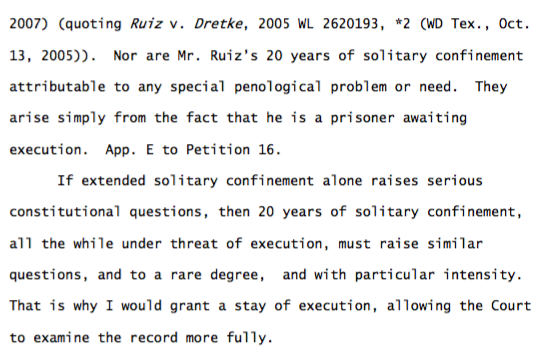Two days after the country chose Donald Trump to be president, the GOP’s senior adviser to the chairman presided over a conference call for a group of black Republicans.
The message from Elroy Sailor was clear: Black conservatives were back. Then the senior adviser to RNC Chairman Reince Priebus, Sailor hurried excitedly through the basics of how they should navigate the transition. Where to be for meetings. How to apply for jobs. And he explained how, after eight long years in the wilderness, it was time to turn up and celebrate.
“Campaigning is actually easy, but governing is hard,” he said — before being interrupted. There was a message from the president-elect that couldn’t wait.
“Hey, Omarosa,” said Sailor, ceding the floor. “How are you?” Omarosa Manigault — gracious on the call, according to two people close to her — told black Republican leaders that the president-elect appreciated what black Republicans had done to help him win. Manigault said the president-elect had committed to creating the “most diverse” staff.
Sailor and Manigault hadn’t spoken in a while. Three black Republican sources familiar with the Trump campaign’s black outreach efforts and the RNC's own program, which was a longstanding project, described the relationship as doomed from the start. Manigault was privately frustrated with what she believed to be the RNC’s inability to reach black voters, and contended that any success the campaign had was theirs, not the party’s. She bristled at the idea of an obligation to black Republicans who she believed never took Trump seriously. Little during the campaign animated Manigault more than her desire to bring Trump to Howard University, a prestigious historically black university in the heart of Washington, D.C. When the plan fizzled amid a lack of interest and anti-Trump activism, she believed the Republicans held it up. “After that,” a source close to her said, “it was a wrap.”
Black conservatives have to wonder: Will that future, the thing they’ve been working toward for a long time, include them?
So when the bookish, bespectacled operative, one of the most respected black Republicans in the country, deferred to Manigault, a personally affable longtime Trump protégé catapulted into fame in the mid-2000s, it seemed to symbolize a new era: that black conservatives would likely be outsiders in a Republican administration.
Trump’s advisers brag that they envision more black, working-class voters supporting the president in 2020 on the strength of the economy (how race, criminal justice, and other issues factor into that vision remain to be seen). Even if the seemingly unlikely does happen, though, black conservatives have to wonder: Will that future, the thing they’ve been working toward for a long time, include them?
All of this — the people Trump already has around him, his deep trust of his own people, and their distrust of black Republicans — is limiting the black conservatives' plan to be a part of Trump’s movement and to grow their own.
“It’s insulting to black Republicans that someone like Donald Trump would get people off the street [to associate with],” said Donald Scoggins, a longtime Republican activist who likes to say his conservative bona fides go back to volunteering for Eisenhower. “These jackleg ministers don’t have any standing in the Republican Party. These are folks Trump has gotten to say, ‘We spoke to the black Republicans.’"
Black conservatives are hesitant to talk specifically about Manigault — who declined an interview for this story — or about how the changes in Washington affect them. Few endorsed Trump publicly during the campaign, with many choosing to stay out of the race or keep quiet for fear of reprisal — though some did support the Republican nominee.
Now that Trump's president, black Republicans hope to put their stamp on policy, fixing black communities by implementing long-championed conservative policies on issues like school choice, localized economic empowerment, and criminal justice. A plan to do this during a retreat at the Gloucester Institute in Central Virginia was postponed, but when it’s complete, it will be sent to Manigault. She also oversaw a convening of HBCU presidents, who participated in a listening session with Vice President Mike Pence, capped by a quick visit with Trump in the Oval Office.
At one juncture, he pointed his thumbs outward — one at Trump loyalist Lynne Patton, and the other at Manigault. “You talk to them,” the president said.
The reality is that if you are black, or concerned with issues affecting black America, with black politics, policy, or culture, Manigault is the person standing between you and the president of the United States.
Trump, in fact, said it himself. Last month at the White House’s African-American listening session, he listened to one person after another speak about their priorities. According to a source in the room, Trump twice asked people to follow up with Manigault. At one juncture, he pointed his thumbs outward — one at Trump loyalist Lynne Patton, and the other at Manigault. “You talk to them,” he said.
![]()
Trump holds an African American History Month listening session.
Michael Reynolds - Pool / Getty Images
It's not that black Republicans didn't make an effort, exactly, to get a seat at the table.
After eight years of the party out of power, black Republicans wanted to celebrate the new administration, to show that they at least were happy with the idea of President Trump, that they'd worked for his election — or at least for didn't stand in its way.
Two nights before the inauguration, Armstrong Williams, a close adviser to Dr. Ben Carson and a prominent black conservative, served as the emcee of a black-tie gala honoring several black Republicans. Amid crab cakes and Patrón and Grey Goose cocktails, a cover band played classic reggae tunes.
The applause came and went. Resplendent in his tuxedo, Carson spoke in proverbial terms flanked by his wife, Candy. “I spent my entire professional career fixing people, working very hard to give them a quality of life, and then you put them back into an environment that is not conducive to good health,” said Carson.
We need to think in a different way, said Carson, preaching now. “Success is not how many people we can put into public housing — it’s how many we can get out.” He drew loud cheers. Candy nudged him: She reminded him to tell everyone that he was going to embark on a listening tour. Carson lit up and dutifully obliged, starting his next statement as the adoring crowd yelled at cities to visit.
“Baltimore!”
“Detroit!”
“Chicago!”
“I know they want to shake your hand and get a photo,” Williams said after Carson finished. Off mic, Carson said, “No problem.” Williams repeated that, and a woman shrieked. Carson was mobbed walking into another room.
But the inauguration week revelry wasn't quite the harbinger of greater things that some black Republicans had hoped. For one thing, Manigault didn't attend. Another party with boxer Floyd Mayweather, whose appearance some black Republicans had bragged about, was a flop. And Carson, though he is a cabinet secretary, isn't central to the White House's strategy.
The retired neurosurgeon's popularity is often held up as a signal of political potency and appeal of black conservatism, a movement that exists in a tough spot, between a party that often relegates black Republicans to the edges and sharp criticism from the other side. Black Americans are the most partisan group of voters in the country, with 94% voting for Barack Obama in the 2012 election. Black Republicans are a smaller group. Beginning most notably with the creation of the National Negro Republican Assembly, black Republicans have been openly critical of discrimination in their own party, including mounting public opposition to figures like Barry Goldwater, who voted against the Civil Rights Act, and Richard Nixon, who some contend ran on a “Southern strategy” of capitalizing on Southern white voters alienated by civil rights laws and desegregation efforts. On the other side, black Republicans are faced with being labeled as a peculiar political species: as racial apologists making way for assimilationist policies that ignore the struggle for racial justice. Obama’s election only threw the black Republican narrative into sharper relief, with many notable black conservatives like Colin Powell breaking with the party to support Obama.
Then came Donald Trump.
From the start of his scorched-earth path to the presidency, Trump had no interest in running a conventional campaign. The campaign's black outreach annoyed black Republicans — mostly because Manigault did it her way, and was proud to.
The campaign looked past popular conservative black pastors with ties to the party when it was time to visit a black church, choosing instead a nonpolitical Detroit pastor who owned a fledgling media company for a well-executed visit and interview (privately, the execution earned praise from counterparts on the Clinton campaign). When Hillary Clinton’s campaign reached out to black civil rights groups and HBCUs, Trump viewed it as pandering; he hated it, preferring spontaneous, freewheeling mentions in his stump speeches (“Look at my African-American over here!”) and rants about how black Americans wanted jobs.
Still, despite their reservations, Trump seemed black Republicans' best bet at taking back — and gaining influence in — the White House. In fact, they saw Trump’s swashbuckling campaigning style and lack of policy experience as an opportunity; surely he’d need them. The GOP had launched the Republican Leadership Institute, which trained staffers to organize in battlegrounds. The GOP went to barbershops, seeking to establish relationships on the local level. But as Trump's campaign continued into the home stretch, some black GOP candidates equivocated on their party’s candidate.
It’s unclear what how deeply black Republicans’ flip-flopping on Trump during the campaign has affected their fortunes with him now.
But that concern was the subtext of a black GOP leaders call last month, three party leaders said. Sources who requested anonymity in order to speak openly about a private communication that was at times critical of the Trump administration, said that black Republicans voiced their feeling that the people who had worked for the party weren’t getting an opportunity to serve in the administration. One source said Dr. Alveda King, a stalwart conservative anti–abortion rights activist who is the niece of Dr. Martin Luther King, asked how she could get to know Trump officials. (Someone must have been listening: She got her wish, touring the National Museum of African American History with Trump in February.) Another party leader, Dr. Ada Fisher, reportedly took issue with the fact that people who supported Trump weren’t being brought to the table. Meanwhile, frustrated operatives listened in as Sailor spoke about the importance of black Republicans creating their own agenda that they would then hand over to Manigault. “And there's your problem,” one said.
![]()
Manigault at an election-night party for Trump in Manhattan.
Dina Litovsky / Redux
Manigault is arguably — and unquestionably to her friends — one of the most memorable characters in American reality-television history. She has lived a life of reinvention. “I’m a moving target,” she told People in 2004. “As soon as they think they’ve figured Omarosa out, I’ve already moved on to a whole different industry.”
Born in Youngstown, Ohio, Manigault attended Central State University in the 1990s, and would eventually become Miss Central State University. In her first stint in the Clinton White House, Manigault was deputy associate director of presidential personnel. After leaving the White House, she struck out on her own — and shortly after learned about a casting for a show with Donald Trump. Second to only the current president of the United States, no one who appeared on the show became more of a household name — even to people who didn’t watch The Apprentice — than Manigault.
But before and after her villainous turn on Season 1 of The Apprentice in 2004, Manigault moved from politics to television, from television to ministry, from ministry to television, and now back to politics.
She has lived a life of reinvention. “I’m a moving target,” she told People in 2004.
She’s said she received her call to ministry during a visit to West Africa, where she found herself alone with an orphan dying of AIDS. She was subsequently ordained as an assistant minister at the Weller Street Missionary Baptist Church in Los Angeles. She eventually met Oscar-nominated actor Michael Clarke Duncan, and the two were engaged before his death in 2012.
Manigault was a self-described “die-hard” Barack Obama supporter. “I don't really get involved in Donald Trump's politics,” she said during a 2013 appearance on The Breakfast Club, pressed on whether her mentor’s treatment of Obama had affected her. "If everybody who were employed by a CEO who disagreed with their politics quit their jobs, we'd all be on the unemployment line. That’s not my form of protest.”
Manigault got involved with Trump’s politics, though — these days, she’s a self-described “Trumplican.” Adept at helping people in and around the Trump campaign navigate Washington, she was named the Trump campaign’s black outreach director in July, on the eve of his nomination. Her name tended to be accompanied by discussion of one of two things: people’s surprise at her ease with her role, and her loyal streak that can border on vindication. Trump respects Manigault, and in turn, she will defend him to the exclusion of all else — a trait on display in recent tense, borderline-explosive interactions with the press. “Every critic, every detractor, will have to bow down to President Trump,” she explained last summer on a PBS Frontline documentary. “It’s everyone who’s ever doubted Donald, whoever disagreed, whoever challenged him. It is the ultimate revenge to become the most powerful man in the universe.”
On the night of Trump’s acceptance of the Republican nomination in Cleveland, with Christian Louboutin heels tucked away in favor of flat shoes, Manigault headed into a darkened bar in a shimmering dress and began dancing to cheers.
She had reinvented herself yet again.
![]()
Manigault appears at a press conference on Nov. 30, 2015, that followed Trump's meeting with black religious leaders in New York.
Timothy A. Clary / AFP / Getty Images
This month, Betsy DeVos met with Howard University President Wayne Frederick.
Two students from the school weren’t there — and though they weren't invited to the event, they offer a window into the kind of challenge black Republicans currently face.
Daisha Martin and Alexis Hasty were behind an effort to relaunch Howard’s College Republicans chapter last year. A Blavity story publicized their support of Trump, and backlash ensued. “I can see identifying with the Republican Party, but cannot imagine how any person of color, or how any woman can find a way to stand with Trump. Perhaps they should stay in college a little longer and learn that you can disassociate the two,” one commenter said. The pair was mocked inside black communities on Twitter.
The DeVos meeting — and the fact they were not invited — angered black Republicans. “Not a single Republican was in the room other than the secretary,” said Republican activist Ralph Chittams on his radio show. “What was taken into the room were a bunch of Democrats.”
"See what’s happening right now, ladies and gentlemen — and people need to understand this very clearly — is black Republicans and black conservatives are being frozen out of the Trump administration by Omarosa Manigault."



































